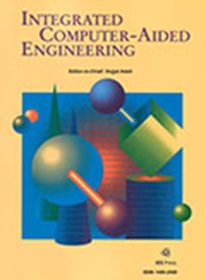船舶导航的强化学习策略
IF 5.3
2区 计算机科学
Q1 COMPUTER SCIENCE, ARTIFICIAL INTELLIGENCE
引用次数: 3
摘要
海上航行安全比以往任何时候都更加重要。货物通常用船运输,因为这在经济上是合理的。然而,海上事故会造成巨大的人员、货物和船舶损失,以及不可逆转的生态灾难。这些都是争取船舶航行安全的原因。领航员应当保证船舶航行安全。他必须计划好每一次行动,确保安全。同时,他必须在密集的海上交通中评估和预测其他船只的行动。这是一个复杂的过程,需要人的持续专注。这是一项非常累人和持久的任务。因此,人为失误是船舶碰撞的主要原因。本文探讨了不同的强化学习策略,以找到最适合实际问题的强化学习策略,以确保海上交通中的安全机动。通过不同算法的实验,找出适合船舶自主导航的方法。实验表明,最有效的算法Deep SARSA准确率达到92.08%。通过两艘船之间的实际碰撞以及如何避免碰撞,证明了所提出模型的有效性。本文章由计算机程序翻译,如有差异,请以英文原文为准。
Reinforcement learning strategies for vessel navigation
Safe navigation at sea is more important than ever. Cargo is usually transported by vessel because it makes economic sense. However, marine accidents can cause huge losses of people, cargo, and the vessel itself, as well as irreversible ecological disasters. These are the reasons to strive for safe vessel navigation. The navigator shall ensure safe vessel navigation. He must plan every maneuver and act safely. At the same time, he must evaluate and predict the actions of other vessels in dense maritime traffic. This is a complicated process and requires constant human concentration. It is a very tiring and long-lasting duty. Therefore, human error is the main reason of collisions between vessels. In this paper, different reinforcement learning strategies have been explored in order to find the most appropriate one for the real-life problem of ensuring safe maneuvring in maritime traffic. An experiment using different algorithms was conducted to discover a suitable method for autonomous vessel navigation. The experiments indicate that the most effective algorithm (Deep SARSA) allows reaching 92.08% accuracy. The efficiency of the proposed model is demonstrated through a real-life collision between two vessels and how it could have been avoided.
求助全文
通过发布文献求助,成功后即可免费获取论文全文。
去求助
来源期刊

Integrated Computer-Aided Engineering
工程技术-工程:综合
CiteScore
9.90
自引率
21.50%
发文量
21
审稿时长
>12 weeks
期刊介绍:
Integrated Computer-Aided Engineering (ICAE) was founded in 1993. "Based on the premise that interdisciplinary thinking and synergistic collaboration of disciplines can solve complex problems, open new frontiers, and lead to true innovations and breakthroughs, the cornerstone of industrial competitiveness and advancement of the society" as noted in the inaugural issue of the journal.
The focus of ICAE is the integration of leading edge and emerging computer and information technologies for innovative solution of engineering problems. The journal fosters interdisciplinary research and presents a unique forum for innovative computer-aided engineering. It also publishes novel industrial applications of CAE, thus helping to bring new computational paradigms from research labs and classrooms to reality. Areas covered by the journal include (but are not limited to) artificial intelligence, advanced signal processing, biologically inspired computing, cognitive modeling, concurrent engineering, database management, distributed computing, evolutionary computing, fuzzy logic, genetic algorithms, geometric modeling, intelligent and adaptive systems, internet-based technologies, knowledge discovery and engineering, machine learning, mechatronics, mobile computing, multimedia technologies, networking, neural network computing, object-oriented systems, optimization and search, parallel processing, robotics virtual reality, and visualization techniques.
 求助内容:
求助内容: 应助结果提醒方式:
应助结果提醒方式:


